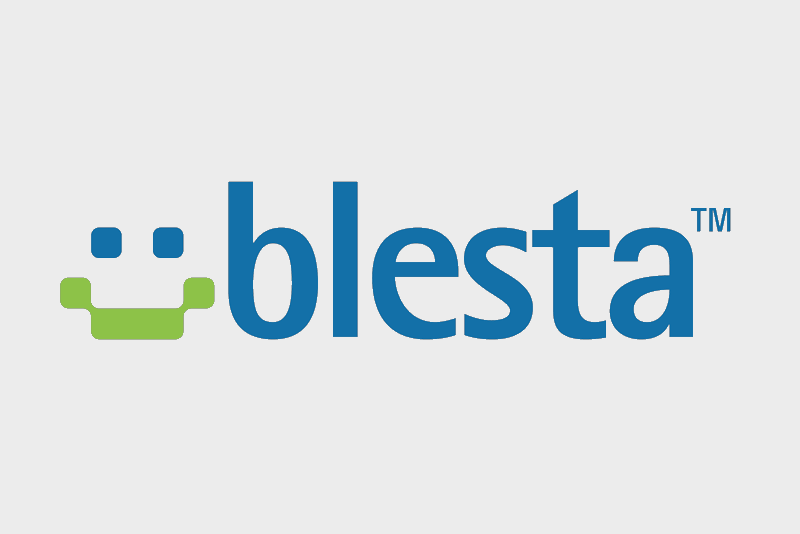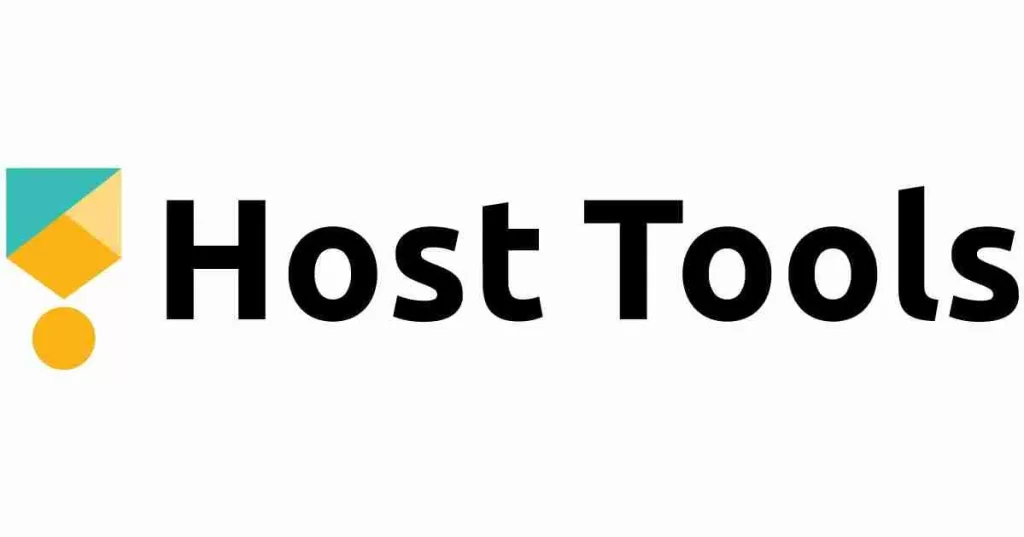When it comes to web hosting management, few players can boast industry-leading pedigree like WHMCS can, having provided the bricks and mortar to ease the grunt work for countless hosting companies through its billing and automation software suite since 2005. But as the internet gets smarter and smarter, the race is on for a modern, feature-rich rival to stake its claim as the de-facto control suite for every self-respecting hosting company. So, in this article, we’ll dive deep into WHMCS alternative, its feature set, what it’s best at and not so good at, as well as some of the contenders that mean you might not need WHMCS to run your hosting company.
Features And Limitation Of WHMCS

Despite its constant evolution, WHMCS is a robust platform that adeptly automates nearly every aspect of web hosting management; with its full automation, including such features as the comprehensive automation and client management, domain registration and the secure client portal, the far easier, far more streamlined provisioning is a fine exemplar of that. Its limitations with design flexibility, however, remain a concern, as do limitations for scaling and its dependencies on extensions, as well as a learning curve that can be steep for new users, and reporting capabilities – while getting better – are still somewhat limited.
Features of WHMCS
- Comprehensive Automation: WHMCS boasts comprehensive automation for various aspects of web hosting management, including billing and invoicing, client onboarding and support ticket systems
- Client Management: The platform has a robust suite of client management tools which is more than capable of giving your clients the tools they need to be efficient and opens the lines of effective communication and relationship management.
- Domain Registration: WHMCS also provides seamless integration for domain registration, making the process of both clients and administrators seamless.
- Secure Client Portal: WHMCS also boasts a secure client portal, to ensure clients’ sensitive information and transactions are safe and secure.
- supplying and Sharing: As services are just provided by AutoPilot, the system is automatically provided with AutoPilot, integrates popular control panel, boosts output through increased automation and delegates.
Limitations of WHMCS
- Design Flexibility: While the web host management platform is rich in features, some users may find that any design flexibility of WHMCS is slightly constraining in that extensive customization is challenging or not viable, particularly for users with very specific branding requirements.
- Scalability: As businesses grow, some the scalability of WHMCS may be a concern for some users, particularly when faced with a larger client base and higher service demands.
- Dependency on Extensions: Some advanced functionality may require users to purchase additional extensions, making it a complex and potentially an entirely third party solution based platform.
- Learning Curve: Users that are new to the platform may experience a steep learning curve, particularly during the setup phase, configuration settings and customization of workflows in order to meet their business requirements.
- Limited Reporting Capabilities: While WHMCS includes basic reporting tools, some users who require more in-depth analytics may find the platform’s reporting capabilities somewhat limiting, in which case they may need to export data to external tools (such as Excel and MySQL).
What Sets WHMCS Apart?
In the line of web hosting management, it’s not really one piece of its design, so much as its integration as a whole mechanism of an answer that is different about the uniqueness of WHMCS. That means that for many users, what makes WHMCS prolific is its level of automation. Rather than being a mere replacement you must adapt your business to, WHMCS is a platform where, from the creation to the management of accounts, you’re able to reach the next level of automation. WHMCS fully automates billing and invoicing, client management, and support ticket systems (to say the least).
It’s this feature set that sees the hosting provider running on simplified operations, and all at better entries. The platform is a portal combining domain registration and provisioning, and a secure client area allows for a convenient as well as secure way for both administrators and their clients to interact. The industry tenure of WHMCS, ultimately, means the ability for an extremely rich ecosystem of extensions and integrations. What this means, in practical terms, is that WHMCS may lack the malleability of many others where you can create the solution customized to your need, but also that it’s hardly “off the shelves” the kind of thing where you are unable to make it “yours” in every sense of the word.
A solution that’s a dedication to stay one step ahead in the web hosting game, and how that plays out and evolves that accommodates the requirements that business owners and operators demand be met today. Of a user-friendly top layer, and a legacy of irrefutably dependable service, it’s not surprising that WHMCS is considered, by many, as the preferred, trusted solution for hosting providers, worldwide, over and over and again. This solution is unique to the extent it’s not a suite of features. In the end, if you will, it arguably is just the best solution out there that you didn’t design from scratch to produce the perfect process for a hosting business, then, that gave up and failed.
Why Seek WHMCS Alternatives?

Every business finds itself at a crossroads in web hosting management, contemplating if and when to explore whmcs alternative. This decision-making process is influenced by a number of considerations that are a testament to the ever-evolving nature of web hosting management
1. Evolving Business Requirements
The underlying and most potent driver of businesses seeking whmcs alternative is the changing nature of their business. As businesses expand, diversify and cater to a growing clientele, web hosting management for many businesses is often at odds with the evolving and intricate demands. WHMCS, proficient as it may be, can find itself short when faced with such demands. Exploring whmcs alternative to graduate one that is in line with their business, now and in the future.
2. Customization Demands
One feature of every business is that it is unique, and web hosting management solution should reflect this uniqueness in design and operational workflow. WHMCS, packed as it may be with features, can find itself short in terms of design flexibility and tailored customization. Businesses seeking a web hosting management solution that mirrors their brand, operational workflow and customer interface requirements need to explore whmcs alternative that offer a more malleable structure. This move away from whmcs alternative gives business the flexibility to shape server management according to their unique needs.
3. Competitive Features
Web hosting is a rapidly evolving industry and in such a landscape, staying ahead of the curve is not an advantage; it’s a necessity. WHMCS, a reliable stalwart though it may be, cannot keep up with new emerging whmcs alternativethat are introducing cutting-edge features that are often the differentiators in the hyper-competitive landscape of web hosting. For businesses looking to stay ahead and to offer services above and beyond industry standards, exploring whmcs alternative is a necessity. It allows them to integrate functionality that not just matches expectations today, but those that are expected of them in the future, ensuring a server management solution that isn’t just current, but futureproof.
4. Enhanced Flexibility and Adaptability
Flexibility and adaptability are the cornerstone of successful web hosting management strategy. WHMCS, though flexible as it is, can find itself lacking in its ability to adapt to new emerging industry norms and technologies, as well as new customer expectations. Businesses navigating the digital landscape are now exploring whmcs alternativeare doing so not just to explore whmcs alternative, but to explore whmcs alternative that offer enhanced adaptability and flexibility.
Thus they will be able to easily integrate new technologies and market trends. In so doing, exploring whmcs alternative has become a strategic move; they secure for their enterprise a web hosting management solution that is able to not just keep up with their operational needs now in the present, but is also one that is agile enough to adapt to the future — whatever that may bring.
Commonly Used WHMCS Alternatives For Web Hosting Management

In today’s rapidly-evolving web hosting management landscape, businesses seeking whmcs alternative will encounter a number of platforms indicating that they’re the best option based on features and functionalities that they may or may not need for the quirks of modern web hosting management. In this post, we’ll delve into ten of the most commonly-used whmcs alternative and highlight what they bring to the table that sets them apart from the rest.
1. Blesta
One of the most elegant solutions available, Blesta is a well-respected platform that provides hosting providers with a user-friendly interface and an end-to-end automation capabilities. This combination of features is complemented by a modular architecture allowing businesses to extend the platform to meet their exact specifications, as well as a wide variety of payment gateways providing the flexibility the modern web hosting industry demands.
2. HostBill
HostBill is the only hosting management program that focuses exclusively on billing and automation and powers the backend of the world’s fastest growing web hosts. The result is an all-in-one, multi-featured, flexible, scalable object-oriented fully automated platform which can operate any type and size of website, built to structure and automate all the operations in a hosting company. As such, by uniting the most wide-ranging variety of payment gateways and offering more payment automation tools than any other system its kind, HostBill is the most powerful billing system on the market and that that’s what makes it the perfect WHMCS alternative.
3. BoxBilling
BoxBilling is feature-rich and lightweight whmcs alternative that was designed with the small business in mind. Unlike platforms that emphasize complexity with providing a true increase in functionality, BoxBilling sports an uncluttered, friendly design that embodies the principles upon which the company was founded – getting hosting providers started today with selling and managing accounts. And the platform does just that with essential features that afford hosting providers everything they need and nothing that they don’t. This combination of functionality and simplicity make BoxBilling the WHMCS alternative of choice for the hosting provider that values efficiency over unnecessary complexity.
4. ClientExec
ClientExec takes aim at businesses with a focus on client management and support. It’s another in the billing and support solutions with a modular structure. The modularity here means users can select and integrate only the features they need. This modular take means a custom-tailored solution that’s not overloaded with superfluous ones, as they’ll be able to adopt functionality as they need it as their hosting business evolves.
5. BILLmanager
BILLmanager is a “feature-rich” billing and infrastructure management solution. This product’s calling card might well be its “robust API support,” however. For businesses operating with a complex hosting infrastructure, BILLmanager is stocked with the tools needed to manage billing and infrastructure with pinpoint precision. This one gets integrated on the strength of its integration capabilities.
6. Hexonet
The domain registration and management specialist, Hexonet is “especially geared for the domain management audience,” because with comprehensive domain management feature-set, businesses should be able to manage their domains with ease and within their hosting environment. If the efficient management of domains is where you want to focus your attention, consider Hexonet.
7. SolusVM
SolusVM starts the list as the top virtual server management solution and a dominant whmcs alternative for a provider focused on virtualization. The solution owes this standing to a simple interface that takes the complexity out of setting up and provisioning complex virtual server tasks. Businesses with a significant virtualized infrastructure can work with SolusVM to streamline them and use the extensive virtualization management tools for a strategic whmcs alternative.
8. ProISP
Simple is best for ProISP, a solution constructed for an automation based but straightforward approach to serving hosting providers. Companies that want a solution that fulfills all the basic automatic hosting requirements can work with ProISP; the front end will integrate the automated backend and provide exactly what these businesses require. The solution is most effective for businesses that are focused on a user centric design and a frontend automation.
9. HostGuardian
HostGuardian is ideal for those companies that have a vested interest in infrastructure security and monitoring. It’s a security-minded solution that does more monitoring infrastructure, than pretty much locking it down. Because of that, it is very easy to find a solution that is first packed with features that monitor infrastructure to an extent you can count on, from the most basic logging, right up to CPU monitoring. It’s also incredibly good at letting you know when you’re on the brink of facing a problem, making you very own NOC in a box. If you’re a company who’s hell-bent on keeping a close eye on your systems, there is no better tool.
10. TheHostingTool
Another option that provides hosting services features is TheHostingTool, a solution for smaller enterprises that want to move on a service from this type of solution. Companies that are just starting in the hosting space and have some experience concerns related to the amount of money that they are spending on hosting can start with TheHostingTool. This solution will give companies the key features that they require without a lot of flashy add ons or options that can clutter up or slow down the platform.
Factors To Consider While Choosing The Perfect WHMCS Alternative

The process of selecting the perfect web hosting management solution demands a meticulous assessment of a host of critical factors to ensure that the chosen platform seamlessly unfolds to address the unique requirements and aspirations of a business. Taking a deep dive into the nuances of identifying the right WHMCS alternative, warrants a comprehensive evaluation of the following major considerations, each serving as a pivotal in dictating the efficacy and fitment of a chosen solution:
1. Scalability – Growing with Your Business
Scalability is more than just a convenience; it is a strategic necessity of web hosting management solutions. As businesses grow, expand, and win customers, they must ensure that the platforms they are based on evolve in a similarly flexible and open way. An whmcs alternative that offers scalability means that the underlying infrastructure will grow and adapt to your business needs, so you can never slow down and never be limited. A solution that is future ready and plans growth is essential to your success.going forward.
2. Customization Options – Tailoring to Unique Needs
Every business has a distinct identity with unique operational needs. The best whmcs alternative must offer multitude of customization options that will revolve the platform around the business accurately in terms of branding, workflow and customer interface requirements. Abundant customization empowers businesses to sculpt the hosting management solution exactly as per their requirement, without any artificial shackles- allowing the platform to adapt to exact requirements where it matters making it more suitable, operational and adaptable overall.
3. Integration Capabilities: A Seamless Ecosystem
It’s imperative that the web hosting management solution that you choose aligns with the other systems and tools within your business ecosystem. The ideal whmcs alternative should provide formidable integration capabilities that make certain smooth collaboration with existing infrastructure, control panels, and third-party applications. By doing so, workflows are streamlined and operational efficiency is augmented as employees aren’t required to waste time switching between tools. Moreover, compatibility with other critical tools obviates the need for different business units to learn new tools, and fosters a consolidated and united approach towards web hosting management that prevents disruptions during the migration to the new platform
4. Support and Documentation: Ensuring a Smooth Experience
The depth of support that an whmcs alternative offers, alongside the breadth of documentation that it makes available can greatly impact the user experience. It’s essential that you scrutinize the quality of support services, including the response time, availability, and the knowledge of the staff. Proactive support ensures that any problems that you may face are resolved quickly and can greatly minimize downtime and any potential disruptions. On the other hand, extensive and easily-accessible documentation will ensure that your team can address the majority of the issues, configure settings, and optimize workflows, all of this without ever seeking external assistance. A well-supported solution enhances the overall reliability and usability of the web hosting management platform.
5. Cost-effectiveness: Beyond Licensing Fees
A complete evaluation of the total cost of ownership is essential in making an informed decision. Licensing fees is of course, a key component of this. However, additional expenses for maintenance, updates, and any required extensions should also be considered. The perfect WHMCS alternative should provide a cost-effective whmcs alternative that falls well within the organization’s budgetary constraints. This requires weighing more than just the upfront costs – businesses should also evaluate the long-term value offered by way of features, scalability, support, and the overall ROI.
Conclusion
In the ever-changing landscape that is web hosting management, the search for the perfect solution is never ending. WHMCS has been a great choice, but with the needs of businesses changing constantly, we must find some whmcs alternative. Each with its own strengths and weaknesses affords you the flexibility to choose one that would fit your business like a glove.









